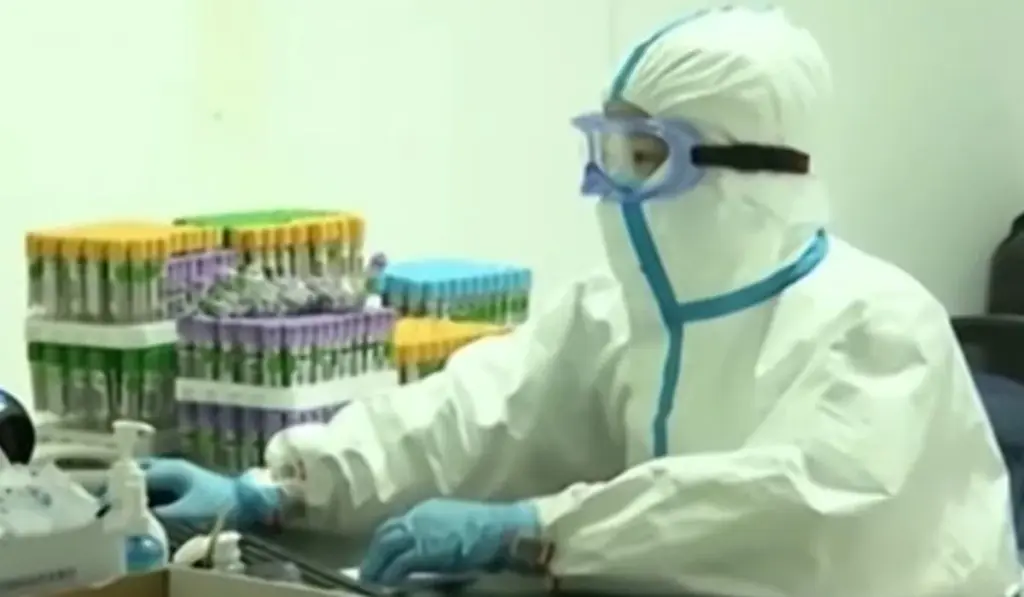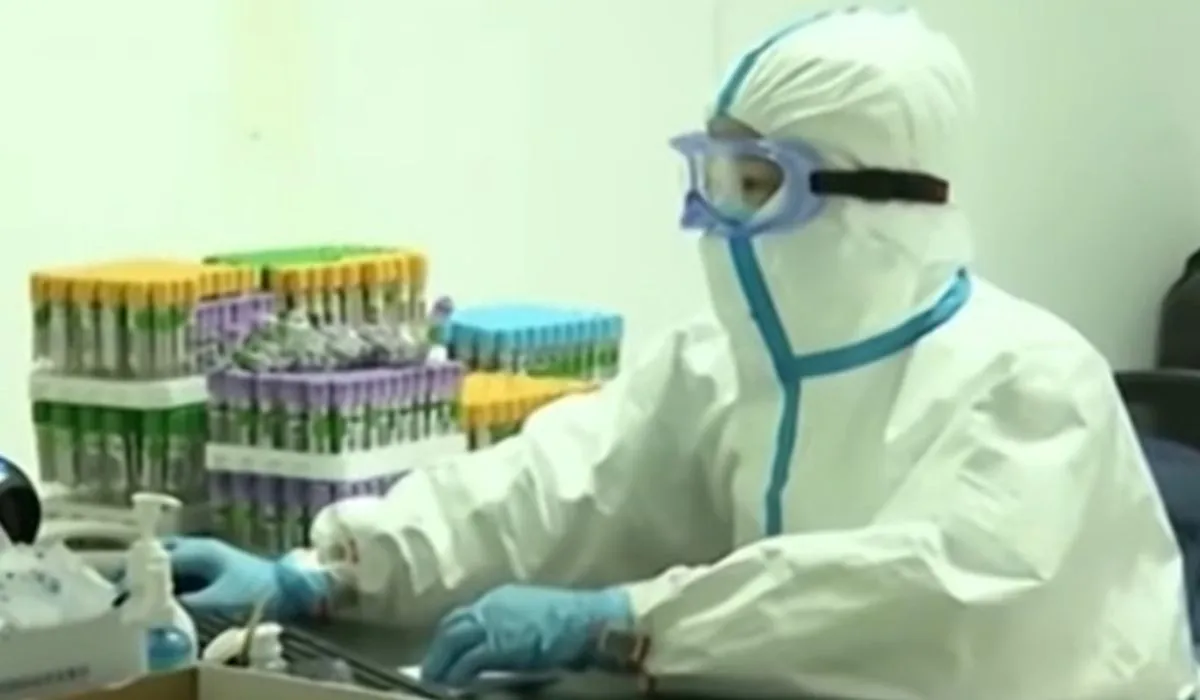China is witnessing a surge in Human Metapneumovirus (HMPV) cases, raising concerns among health experts and the general public. As respiratory illnesses spike during the colder months, reports indicate that HMPV infections are climbing rapidly, sparking fears of a potential widespread outbreak similar to previous respiratory viruses like COVID-19 and RSV.
In The News
What is Human Metapneumovirus ?
HMPV is a respiratory virus that belongs to the same family as RSV (Respiratory Syncytial Virus) and the measles virus. First discovered in 2001, HMPV primarily causes respiratory infections, leading to mild symptoms in most people but potentially severe complications in young children, the elderly, and immunocompromised individuals.
Symptoms of Human metapneumovirus
The symptoms of HMPV are often mistaken for the common cold or flu, making it difficult to detect without laboratory tests. Common symptoms include:
- Coughing
- Fever
- Shortness of breath
- Congestion and runny nose
- Wheezing
- Fatigue
- Sore throat
For high-risk groups, such as infants and seniors, HMPV can lead to pneumonia and bronchitis, requiring hospitalization in severe cases.
Why is human metapneumovirus Surging in China?
Experts suggest multiple factors contributing to the recent HMPV outbreak in China:
1. Post-Pandemic Immune Gaps
Following strict COVID-19 lockdowns, many people’s immune systems haven’t been exposed to common respiratory viruses, making them more vulnerable. This phenomenon, often called “immune debt,” has led to an increase in severe respiratory infections worldwide.
2. Seasonal Influence
Like other respiratory viruses, HMPV spreads more aggressively in colder months, particularly in regions experiencing harsh winters.
3. High Population Density
China’s urban centers are densely populated, creating an environment where viruses spread rapidly through close contact in public spaces, schools, and workplaces.
4. Low Awareness and Testing Rates
Unlike COVID-19 or the flu, HMPV is not widely tested for, meaning many cases might go undiagnosed. Without proper testing, infected individuals may unknowingly spread the virus.
Read Also:
- A Dazzling Night: The Quadrantids Meteor Showers Light Up the Sky
- FCC Reinstates Net Neutrality Rules: A Game-Changer for Internet Users
- Mass Shooting Outside Queens Nightclub Leaves 10 Injured on New Year’s Day: A Tragic Start to 2025
- Elena Rybakina Announces Stefano Vukov’s Return for 2025 Season
- Novak Djokovic Dominates Monfils to Secure Spot in Brisbane Quarters
- Mad Max: Fury Road! Exploring the Legacy of A Cinematic Masterpiece
- A Rare Celestial Event: The Enigmatic Black Moon to Grace the Skies
- US Treasury Department Hacked: Cybersecurity Concerns Rise Amid Major Breach
How Does human metapneumovirus Compare to COVID-19 and RSV?

HMPV is often mistaken for COVID-19 or RSV due to overlapping symptoms, but there are key differences:
| Virus | Incubation Period | Severity | High-Risk Groups | Vaccine Available? |
|---|---|---|---|---|
| HMPV | 3-6 days | Mild to Severe | Infants, elderly, immunocompromised | No |
| COVID-19 | 2-14 days | Mild to Critical | All age groups | Yes |
| RSV | 4-6 days | Mild to Severe | Infants, elderly | Yes (for elderly and high-risk infants) |
Unlike COVID-19 and RSV, there is no vaccine for HMPV, making prevention and symptom management crucial.
How is human metapneumovirus Treated?
Since HMPV is a viral infection, antibiotics won’t help. Treatment focuses on relieving symptoms through:
- Rest and hydration
- Over-the-counter medications for fever and congestion
- Steam therapy and humidifiers to ease breathing
- Oxygen support in severe cases
How Can You Protect Yourself from HMPV?
With no vaccine available, prevention is the best defense against HMPV. Experts recommend:
1. Practicing Good Hygiene
- Wash hands frequently with soap and water.
- Use alcohol-based hand sanitizers when soap isn’t available.
2. Avoiding Close Contact with Sick Individuals
- Stay at least six feet away from infected individuals.
- Avoid crowded places when respiratory infections are spreading.
3. Wearing Masks in Public Spaces
- High-quality masks, such as N95 or KN95, can reduce transmission.
- Masks are especially useful for high-risk individuals.
4. Strengthening Your Immune System
- Eat a balanced diet rich in vitamins and minerals.
- Stay physically active and get adequate sleep.
- Manage stress, as chronic stress weakens the immune system.
Will HMPV Become a Global Concern?
While HMPV has been around for decades, its recent surge in China has sparked international concern. Experts warn that the virus could spread beyond China, especially with increased global travel and winter infections on the rise.
Could This Lead to Another Pandemic?
Health officials do not believe HMPV will cause a pandemic like COVID-19. However, they emphasize the need for increased awareness, research, and prevention efforts to avoid potential healthcare strain.
What is China Doing to Combat the HMPV Outbreak?
China’s health agencies are monitoring the outbreak closely, issuing advisories for hospitals and the public. Some measures include:
- Enhanced surveillance of respiratory infections
- Improving hospital preparedness for severe cases
- Encouraging mask-wearing and hygiene protocols
Final Thoughts: Should You Be Worried?
HMPV is not new, but its recent rise in China is a wake-up call. While most infections are mild, the virus can be severe for vulnerable groups. Staying informed, practicing good hygiene, and boosting immunity remain the best ways to stay safe during this outbreak.
The rise of HMPV cases in China serves as a reminder of how quickly respiratory viruses can spread, especially in densely populated areas. The world must remain vigilant and proactive in addressing potential outbreaks by:
✅ Encouraging research into vaccines and antiviral treatments for HMPV.
✅ Enhancing global surveillance to detect and track respiratory virus outbreaks early.
✅ Strengthening healthcare systems to handle seasonal surges in respiratory illnesses.
✅ Educating the public on the importance of personal hygiene, immunity-boosting practices, and preventive care.
While there’s no need for panic, awareness and preparedness can go a long way in minimizing the impact of HMPV and ensuring that vulnerable populations remain protected. The more informed we are, the better equipped we will be to handle this outbreak and any similar health threats in the future.










